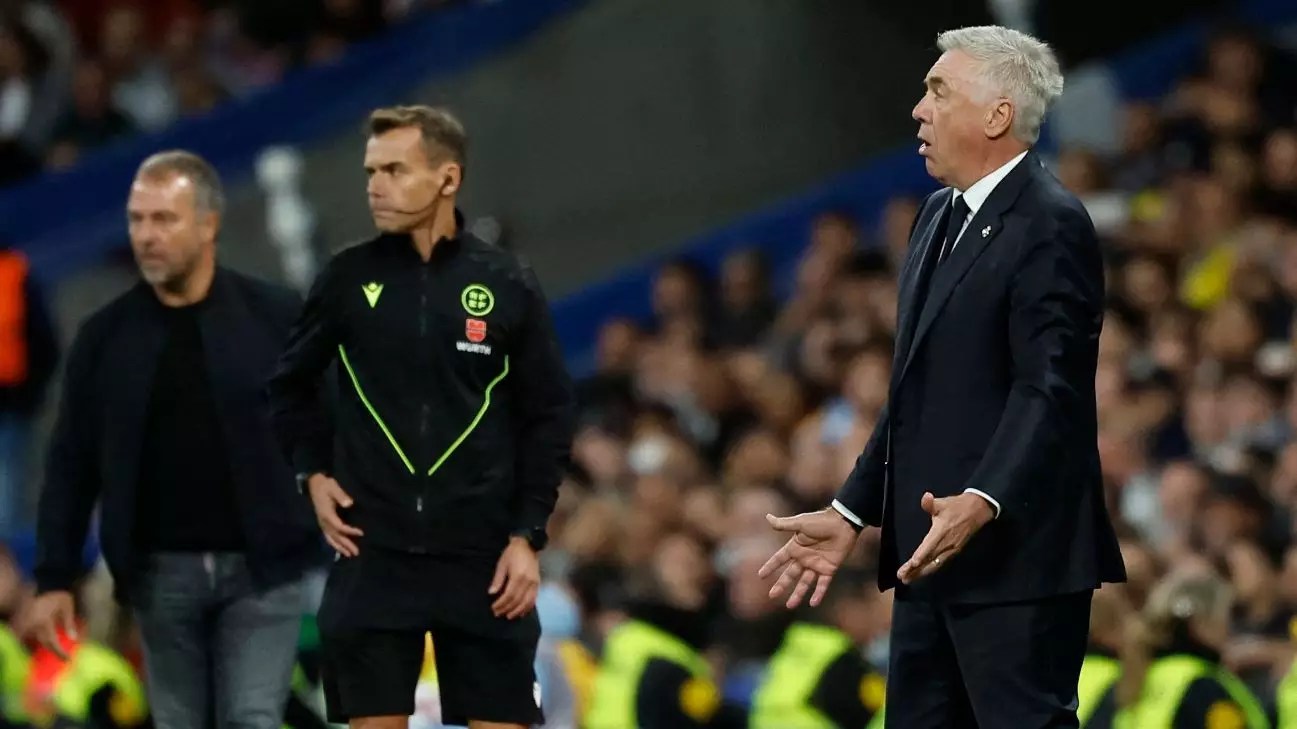The recent El Clásico saw Real Madrid fall to a resounding 4-0 defeat against their arch-rivals Barcelona at the Santiago Bernabéu. This outcome not only snapped Madrid’s impressive 42-game unbeaten streak in La Liga but also allowed Barcelona to establish a six-point lead at the top of the table. The match was punctuated by triumphant celebrations from Barcelona’s bench, particularly after their fourth goal, which drew ire from Madrid’s head coach, Carlo Ancelotti. Such moments highlight the competitive nature of the rivalry but also evoke discussions about sportsmanship, tactics, and the psychological effects of defeat in elite sports.
Historically, El Clásico has been a fierce battleground for supremacy in Spanish football, with both teams often alternating between dominance. This recent defeat signals a possible shift in power dynamics, at least temporarily, in favor of Barcelona. With Robert Lewandowski finding the net on two occasions, alongside goals from emerging talent Lamine Yamal and Raphinha, Barcelona demonstrated their clinical finishing and adaptability throughout the match. The intensity of their performance not only inflicted pain on their opponents but also sent a strong message to the rest of the league: Barcelona is back in formidable form under the management of Hansi Flick.
The repercussions of this match will undoubtedly reverberate through both teams’ seasons. For Real Madrid, the implications are significant. Maintaining a winning mentality is crucial, especially when faced with such a decisive defeat. Ancelotti’s acknowledgment of a spirited first half contrasts sharply with his team’s subsequent collapse, indicating that the players were likely caught off guard once the scoreboard tilted against them. Understanding how to manage emotions and resilience in high-stakes matches will be imperative for the team’s success moving forward.
One of the more pressing issues post-match was the conduct displayed by Barcelona’s bench during their celebrations. Ancelotti voiced his displeasure with one of Flick’s assistants who he claimed acted in a manner lacking in sportsmanship. This incident raises questions about the boundaries of celebration in professional sports. Lines can become blurred when emotions run high, but maintaining respect for one’s opponents is essential in promoting a culture of sportsmanship.
While Hansi Flick seemed to downplay the altercation, labeling it a normal reaction to a tense situation, Ancelotti’s grievance reflects a deeper concern — how celebration can contribute to the narrative of rivalry and respect (or lack thereof). The psychological effects on players and coaches involved can sometimes linger longer than the final score.
From a tactical standpoint, the match illuminated several issues within the Real Madrid squad. Ancelotti noted that his side had opportunities to score but failed to capitalize on them. This inability to convert chances, particularly in the first half, ultimately shifted the momentum in favor of Barcelona. The details of Kylian Mbappé’s performance serve as a microcosm of Madrid’s overall struggles — high-profile players found wanting in crucial moments. Caught offside a staggering eight times, Mbappé’s frustrations compounded as he failed to convert several clear opportunities, effectively stifling Madrid’s attacking play.
Flick, however, praised the resilience of his own team. His focus on continual improvement and building upon their recent successes is indicative of a managerial approach that seeks sustainable progress rather than simply basking in short-term glory. Moreover, the stunning victory over Bayern Munich a few days prior put Barcelona in high spirits, further contributing to their confidence on the pitch during the Clásico.
As both teams turn their focus to the upcoming fixtures, the psychological and tactical implications of El Clásico will shape their strategies in future matches. For Real Madrid, bouncing back from humiliation is a critical test of character. Ancelotti’s words that “we have to learn” and “not give up” encapsulate a clear pathway forward, emphasizing the necessity for self-reflection among players.
For Barcelona, this victory serves as validation of their overhaul under Flick, yet humility in victory will keep the team grounded. Comments from Flick about the need to continue improving suggest a balanced approach, likely aimed at preventing complacency. The month ahead will be pivotal for both clubs, as they strive not only for points but also for the establishment of psychological dominance as the La Liga season progresses.
While the Clásico may have ended decisively in favor of Barcelona, the repercussions of this match are far-reaching, influencing team dynamics, personal performances, and ultimately the trajectory of their seasons.


Leave a Reply